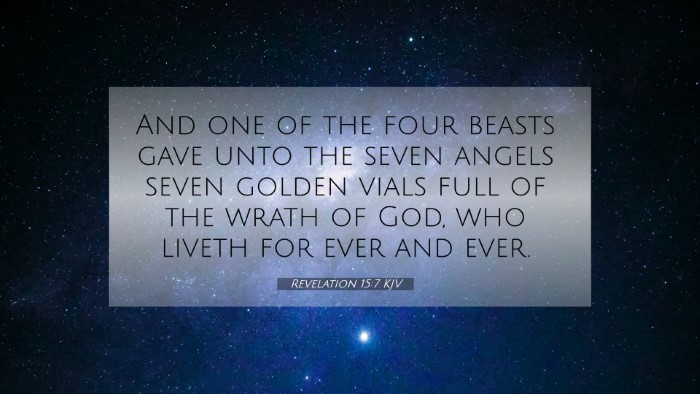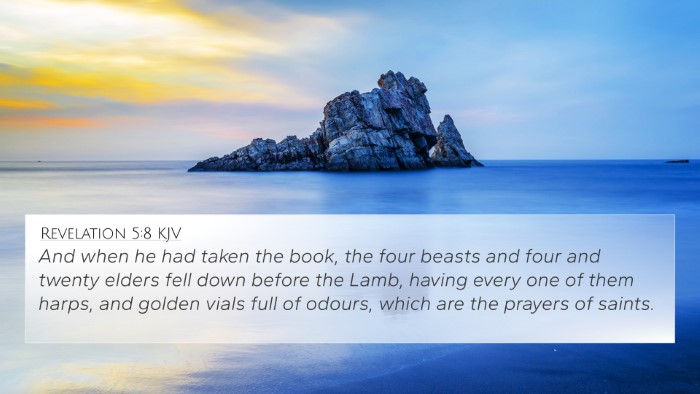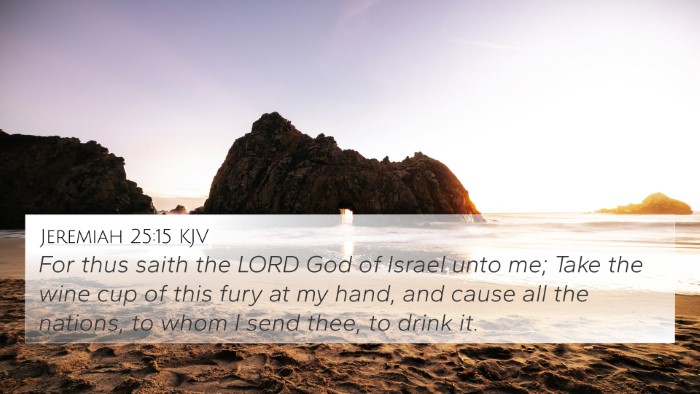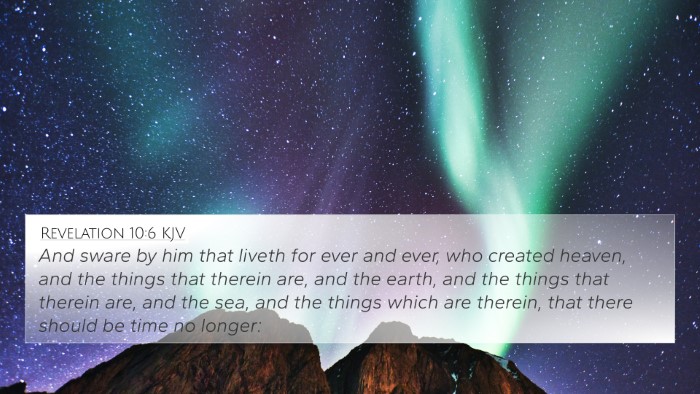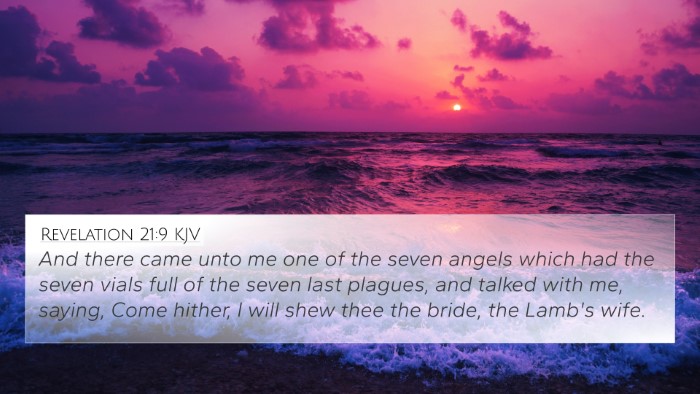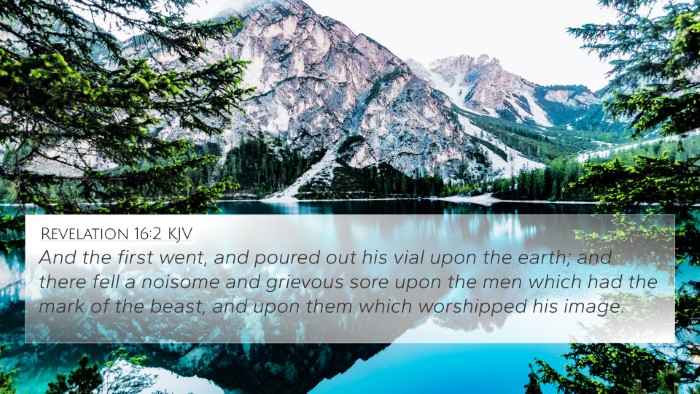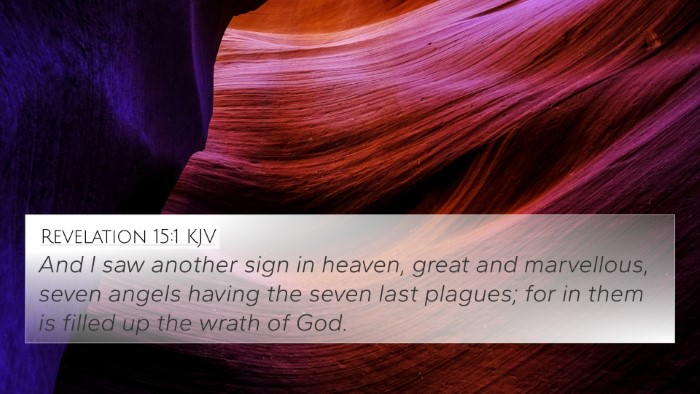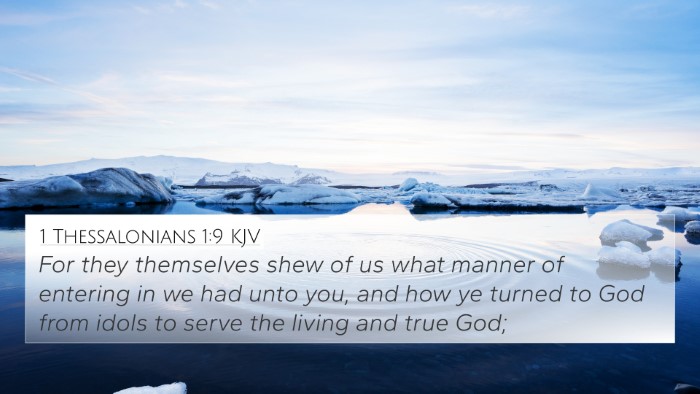Understanding Revelation 15:7
The verse Revelation 15:7 states, "And one of the four living creatures gave unto the seven angels seven golden vials full of the wrath of God, who liveth for ever and ever." This passage encapsulates significant themes regarding divine wrath, judgment, and the preparation for the final outpouring of God's judgments upon the earth.
Commentary Insights
Matthew Henry's Commentary
Matthew Henry explains that the seven vials symbolically represent God’s complete and final judgment. He emphasizes the role of the living creatures—often viewed as seraphim or cherubim—as divine messengers that serve at the altar, executing God's decree.
Albert Barnes' Notes
According to Albert Barnes, the "golden vials" signify the preciousness and the seriousness of God’s judgments. The pouring out of these vials illustrates the inevitability of God’s wrath against sin and rebellion. Barnes also notes the eternal aspect of God, emphasizing that His judgments are not fleeting but are part of His everlasting nature.
Adam Clarke's Commentary
Adam Clarke views the seven angels as representatives of God's authority. The vials filled with wrath point to the severity of the impending judgments, revealing that these are not merely acts of wrath, but are deeply rooted in God's justice. Clarke also alludes to the angelic activity in the administration of God’s plans throughout the Revelation narrative.
Thematic Connections
Revelation 15:7 expands upon existing biblical themes regarding God's holiness and justice. The themes resonate with numerous other scriptures, offering a rich landscape for understanding divine judgment.
Cross-References
- Exodus 12:12: The concept of God's judgment is mirrored in the plagues upon Egypt.
- Psalm 119:119: This verse expresses God’s contempt for the wicked, aligning with the imagery of judgment.
- Romans 1:18: It discusses the revelation of God’s wrath against unrighteousness, connecting to the theme of divine retribution.
- James 2:13: Highlights the severity of judgment without mercy, echoing the idea of the vials of wrath.
- Revelation 16:1: Continues the narrative of the seven vials, underlining the unfolding of God’s judgments.
- Hebrews 10:31: Encourages reverence for the wrath of God, compatible with the seriousness seen in Revelation 15:7.
- 2 Thessalonians 1:6-8: This passage further elaborates God's justice against those who persecute the faithful.
- Isaiah 13:9-11: Discusses the day of the Lord’s vengeance, which parallels the themes found in Revelation.
- Zephaniah 3:8: God calls for His judgments, promising restoration after the execution of His wrath.
- 2 Peter 3:7: This verse mentions the reserved judgment against the ungodly, confirming the themes of divine wrath.
The Importance of Cross-Referencing
Cross-referencing Bible verses allows readers to uncover deeper meanings and relationships throughout Scripture. By linking passages, believers can identify:
- Thematic biblical connections, enhancing understanding of God's character and actions.
- Comparative analysis of prophecies and their fulfillments, enriching faith and comprehension.
- Inter-Biblical dialogue, helping discern continuity and development of biblical themes.
How to Use Cross-References in Bible Study
To effectively use cross-references for deeper biblical understanding, consider:
- Utilizing a Bible concordance to find related verses based on keywords.
- Engaging in thematic studies, focusing on specific doctrines or narratives across different books of the Bible.
- Participating in group studies that encourage discussions around cross-referenced ideas, fostering collaborative discovery of scriptural truths.
- Incorporating cross-reference guides in personal study or sermon preparation for enriched insights.
Conclusion
Revelation 15:7 serves as a pivotal verse that bridges the themes of God’s wrath and divine justice with broader biblical narratives. Understanding this verse through the lenses of cross-referencing allows for a greater appreciation of God's plan and character as revealed throughout Scripture. As you engage in your biblical studies, remember the importance of connections between Bible verses, as they lead to a more profound understanding of the word of God.


